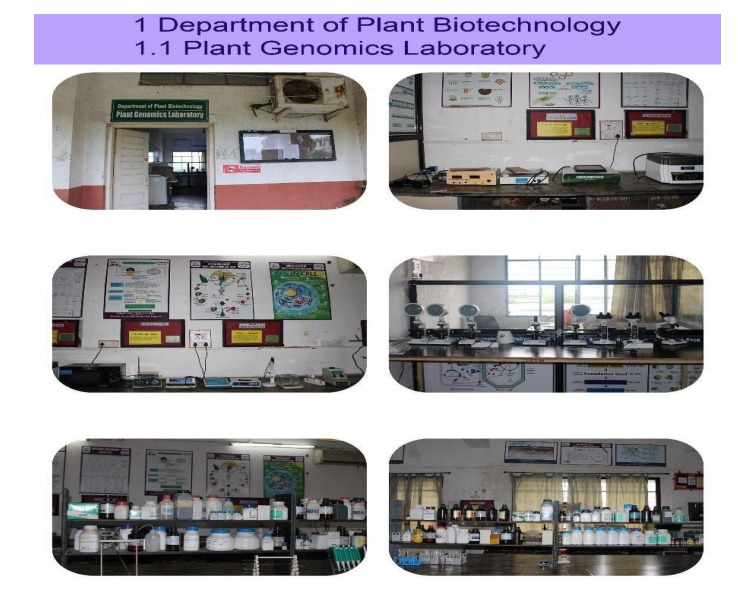Admission Process
Head of Department: Prof. Gavhane D.B. / Waghmare P.R.
Designation: Assistant Professor
About Department:
Plant Biotechnologies that assist in developing new varieties and traits include genetics and genomics, marker-assisted selection (MAS), and transgenic (genetic engineered) crops. These biotechnologies allow researchers to detect and map genes, discover their functions, select for specific genes in genetic resources and breeding, and transfer genes for specific traits into plants where they are needed. NIFA funds research, training, and extension for developing and using biotechnologies for food and agriculture.
Overview
Plant Biotechnology is a rapidly evolving field at the intersection of plant science, molecular biology, and genetic engineering. It holds the key to addressing some of the most pressing global challenges, such as food security, environmental sustainability, and agricultural productivity. At Aditya Agricultural Biotechnology College, we offer a comprehensive program in Plant Biotechnology, equipping students with the knowledge and practical skills necessary to contribute to innovative solutions in agriculture.
Key Areas of Study
The Plant Biotechnology curriculum covers various aspects of plant science, with a strong focus on genetic modification, molecular techniques, and plant breeding. Core areas of study include:
Plant Molecular Biology: Understanding the genetic makeup of plants and the molecular processes that govern their growth, development, and response to environmental factors.
Genetic Engineering: Techniques for modifying plant genomes to enhance desirable traits, such as resistance to pests, tolerance to environmental stresses, and improved nutritional content.
Plant Tissue Culture: The cultivation of plant cells and tissues in controlled environments to produce clones, develop new plant varieties, and conserve plant species.
Biotechnology in Crop Improvement: Utilizing biotechnological tools to develop high-yielding, disease-resistant, and pest-resistant crops.
Plant Metabolism and Secondary Metabolites: Investigating the production of bioactive compounds, such as alkaloids and flavonoids, that have medicinal and industrial applications.
Research and Innovation
Our college fosters a research-oriented approach to plant biotechnology, with a focus on cutting-edge techniques like CRISPR-Cas9 gene editing, functional genomics, and synthetic biology. Students have the opportunity to work alongside faculty on projects that aim to solve real-world problems in agriculture, such as developing drought-resistant crops, improving soil fertility, and creating plants with enhanced nutritional value.
Career Prospects
Graduates of the Plant Biotechnology program are well-equipped to pursue careers in academic research, agricultural biotechnology companies, government agencies, and non-governmental organizations. They can contribute to advancing the fields of plant breeding, pest management, crop protection, and bioengineering. Potential career paths include:
Research Scientist in Plant Biotechnology
Agricultural Biotech Consultant
Plant Breeder
Quality Control Analyst in Agricultural Products
Environmental Impact Specialist
Conclusion
Plant Biotechnology is a transformative field that is essential to meeting the demands of the 21st century. At Aditya Agricultural Biotechnology College, we are committed to providing high-quality education that prepares students to make significant contributions to the advancement of sustainable agriculture and food security worldwide.


